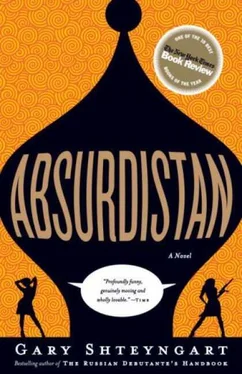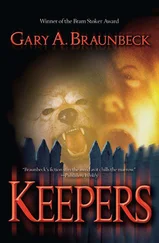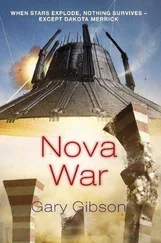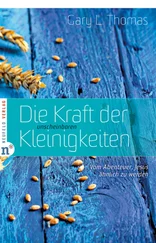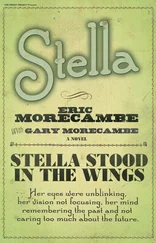Rouenna bent forward with the globe of her stomach and rubbed my khui with that soft surface. I thought maybe that was the only way she was capable of touching it, but I was wrong. She bent down with her open mouth and breathed on it for a while. My khui straightened out and crept toward her waiting orifice. Stop it! I told myself. You’re a disgusting creature. You don’t deserve this.
But Rouenna didn’t put my khui in her mouth. She turned it over, found the most hideous spot on its underbelly—a vivid evocation of the bombing of Dresden—and, for the next 389 seconds (a handy clock helped me count), imparted upon it a single, silent kiss.
My gaze traveled beyond the dark mound of her hair, past the Brancusian dicks lining the walls of my loft, and right out my double-pane windows.
I floated above the city, glancing generously in each direction. The careless hooks and crags of Queens and Brooklyn, slivers of industry, quadrangles of brown-bricked terraced flats; the fanatic middle-class hopes of already half-darkened New Jersey tendering their resignation for the night; the carpeted grid of Manhattan sinking into the flat horizon, the garlands of yellow light—sharp, overreaching—that form the facades of skyscrapers, the garlands of yellow light—diffuse, flickering—that form the sprawl of tenements, the garlands of yellow light—swerving, opportunistic—that form the headlights of taxi caravans: the garlands of yellow light, aye, in their horizontal and vertical arrangements that form a final resting place for the collected hopes of our civilization.
And to my father, I say: I’m sorry, but this floating feeling, this yellow city at my feet, those full lips around what’s left of me, this is my happiness, Papa. This is my pierogi.
And to the generals in charge of the Immigration and Naturalization Service who have been patiently reading this tale of the Bronx mixed-race girl and the overweight Russian, I ask: In what other country could we have found succor together? In what other country could we have even existed?
And after getting down on my knobby knees, I say to the INS generals: Please, sirs.
I say to them like a child: Please, please, please…
5

Among the Merry Mourners
On the way home from the Russian Fisherman, my heart broken with news of Papa’s death, I squeezed in on the Rover’s back bench with Alyosha-Bob and wept into his neck, wiping my nose against his Accidental College sweatshirt. He draped both arms around my head and tickled the willowy hair around my bald spot. From afar it may have looked like an anaconda strangling a rodent, but it was really just my love spilling out over a dear friend. There was even something compassionate about Alyosha’s smell that evening—greasy summer sweat, the sharp pungency of fish highlighted by alcohol—and I found myself wanting to kiss his ugly lips. “ Nu, ladno, nu, ladno, ” he kept saying, which could be translated as “It’s going to be okay” or “So there it is” or, if you’re a less charitable translator, “Enough already.”
To be honest, I wept not for my father but for the children. On the way home, we passed by a corner of Bolshoi Prospekt, where last winter I’d had a little breakdown for the stupidest of reasons. I had seen a dozen kindergarten pupils trying to cross the boulevard, each bundled in a jaunty collection of misshapen coats, their shapkas falling off their tiny heads, their feet encased in monstrous hand-me-down galoshes. A boy and a girl, one at the front and one in the back, held aloft giant red flags to warn motorists that they were deigning to cross. A young, pretty teacher was on hand to help them ambulate in the right direction. Who knows why—primordial memory, a sudden reprise of my stunted conscience, a big man’s evolutionary compassion for anything small—but I wept for the children that day.
Diminutive, cherubic, Slavic, they stood by the teeming Bolshoi Prospekt with those idiotic red flags, their puffy faces producing small steam clouds that looked like little child-thoughts struggling in the monumental cold. The cars kept passing them, the rich man’s Audi and the poor man’s Lada. No one would pause to let them past. As we waited for the light to change, I opened my window and leaned out, blinking like a great Northern turtle in the chill, trying to read their faces. Were those smiles I saw? Delicate new teeth, wisps of blond hair peering out from the fortress of their hats, and grateful, unmistakable grins accompanied by disciplined Petersburg children’s laughter. Only the schoolteacher—silent, straight, proud in the way only a Russian woman who makes US$30 a month could be—seemed cognizant of the collective future that awaited her charges. The light changed, my driver, Mamudov, zoomed ahead with his typical Chechen ferocity, and I looked back at the children, catching the boy with the red flag taking his first careful step onto Bolshoi Prospekt, waving his banner with gusto, as if this were 1971, not 2001, and the flag he held were still the emblem of a superpower. I asked myself, If I were to give each of them US$100,000, would their lives change? Would they learn to become human beings upon completing their adolescence? Would the virus of our history be kept at bay by a cocktail of dollar-denominated humanism? Would they become, in a sense, Misha’s Children? But even with my largesse, I could see nothing positive befalling them. A temporary respite from alcoholism, harlotry, heart disease, and depression. Misha’s Children? Forget it. It would make more sense to have sex with their teacher and then buy her a refrigerator.
And that, to tell you the truth, is why I cried on the drive back from the Fisherman. I cried for the children of some Kindergarten No. 567, and for my own impotence and collusion in everything around me. Eventually, I promised myself, I would cry for dead Papa, too.
After we finally made it home, I started popping Ativans, three milligrams at a time, and chasing them with Johnnie Walker Black. It was a good idea. The two substances worked to bolster each other—the anti-anxiety meds made me drunker, and the Black robbed me of panic. Actually, what happened was: I fell asleep.
When I woke up, I was lying on top of Rouenna, the only girl I knew who was big enough to absorb my weight. She was snoring peacefully, I could feel her massive vagina rubbing against my tummy. Alyosha-Bob came into the bedroom, trailing the sound of laughter and television from the downstairs parlor.
“Hey, Snack,” Alyosha-Bob said. “Microphone check, big buddy.” He looked warmly at my naked Rouenna passed out on the bed, or rather, the couch. My favorite room was designed to resemble the office of my New York analyst, Dr. Levine, with two black leather Barcelona chairs facing a matching Mies van der Rohe daybed, the kind I used to lie on five times a week until my fat was branded by its indentations. I managed to find replicas of the colorful Sioux tepee photographs Dr. Levine had hung on his walls, although a copy of the drawing resplendent above his couch—a West African stab at the Pietà —has so far proved elusive.
Alyosha-Bob patted my pretty curls. “Captain Belugin wants to talk to you, homey,” he said. “Come down to breakfast.”
Breakfast? Morning already? The sky out the window was yellow with cheap exhaust and nearby peat fires. It made me hungry for eggs sunny side up served in a Brooklyn diner. I didn’t say anything. I imagined I was a hospital patient, and draped myself over my friend. I let Alyosha-Bob lead me into the downstairs parlor, past the six empty upstairs bedrooms with their endless tin-pressed ceilings and salmon-colored walls, past the winding wrought-iron staircase embellished with serpents and apples, which I had recently installed in some bizarre biblical gesture.
Читать дальше
